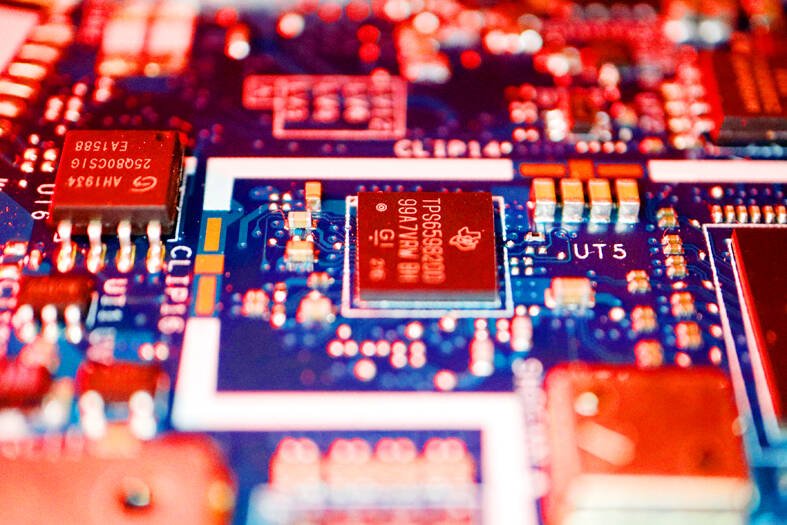TOP SECRET:
Taiwan’s advanced semiconductor technologies are important for global politics, and personnel could be bribed or pressured by China to leak secrets
-
By Su Yung-yao and Jake Chung / Staff reporter, with staff writer
In light of a recent alleged leak of corporate secrets at Taiwan Semiconductor Manufacturing Co (TSMC), Institute for National Defense and Security Research director Su Tzu-yun (蘇紫雲) yesterday called for drafting a sensitive technology protection law to better protect national security and corporate interests.
Three current and former employees of TSMC have been arrested for allegedly stealing sensitive trade secrets related to the company’s advanced 2-nanometer technology, prosecutors said on Tuesday.
According to the High Prosecutors’ Office, TSMC discovered unusual access to confidential files during internal monitoring.

Photo: REUTERS
After conducting its own investigation, the company suspected that national core technology might have been illegally obtained by three people, it said.
TSMC reported the case to prosecutors, who conducted search and arrest operations from July 25 to 28, the office said.
Against the background of a US investigation into the semiconductor market under Section 232 of the US Trade Expansion Act of 1962, paving the way for potential tariffs on semiconductors, Su said the case highlighted that the semiconductor manufacturing industry, critical not only for the development of digital economies, but also for advanced military capabilities, also affected mutual trust between Taiwan and other nations.
Security is the core goal for technopolitics, as evidenced by former US president Joe Biden’s policies to strengthen allies’ supply chains and US President Donald Trump’s policies to exclude China from its product supply chains, Su said.
For the intelligence community and high-technology companies, production safety is the most significant concern, with information security and personnel safety in second and third place respectively, he said, adding that this might be a point of concern for the US, as engineers and management personnel could be bribed or pressured by China or competing companies to leak sensitive documents or information.
Taiwan should reference other democratic nations’ measures to protect technology, such as how universities in the US and Japan have a security department that mandates academics who are traveling to specific nations or regions to ensure that laptop computers or phones they bring contain no personal data, Su said.
Su also cited how the FBI has been investigating academics who have been part of China’s Thousand Talents Plan and has arrested some of the people involved.
Taiwan could reference the US Pentagon’s security policy, which is gradually implementing a zero-trust architecture throughout its systems and is implementing more active security measures for its providers, Su said.
Additional reporting by CNA

